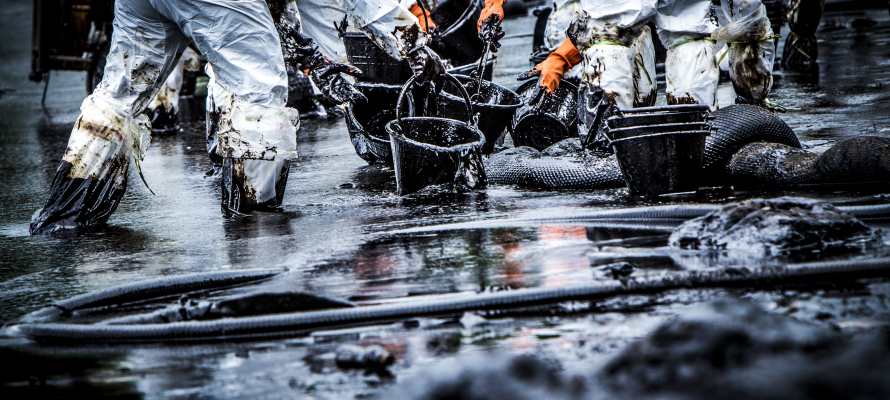Israeli firefighters and other emergency responders rush to prevent last week’s oil spill, one of Israel’s worst pollution disasters, from causing further environmental contamination.
The crude oil spill in the Arava region – Israel’s long, eastern valley between the Dead Sea and Eilat – seems to be much more serious than originally estimated, according to the most recent update by the Ministry of Environmental Protection (MoEP).
The MoEP has called it one of the worst pollution disasters in the history of Israel. While the clean-up could take several months, according to the ministry, firefighters and pipeline crews were dispatched immediately to seal the pipeline’s puncture and contain the spill as much as possible.
With rain expected in the region on Tuesday, there are concerns of flooding and contamination. This could cause the oil to spread further over large areas, including the waters of the Gulf of Eilat-Aqaba.
As of Monday, 13,000 tons of contaminated soil were removed by cleanup crews and transferred to the Nimra landfill north of Eilat. Meanwhile, EAPC data indicates that a total of 5-million liters of crude oil have leaked from the pipeline. The company’s original estimation was 1-1.5 million liters, a figure that the MoEP had doubted.
The spill was the result of a breach in the Eilat-Ashkelon pipeline – owned by the Eilat Ashkelon Pipeline Company (EAPC) – which occurred south of Be’er Ora, a small community near the southern city of Eilat.
The MoEP had immediately sent workers to begin the cleanup and established a team to investigate the circumstances.
Following initial testing, high levels of benzene were detected on Highway 90, along a cycling route that had been scheduled to be part of the triathlon but was subsequently cancelled.
Crews have been working to prevent the spill from spreading further and from reaching Jordan.
As the cleanup continues, the MoEP has ordered the pipeline company not to resume activities of the pipe that burst until receiving explicit permission from the ministry.
Meantime the MoEP is working as quickly as possible and with reinforced equipment in preparation for the expected rainfall on Tuesday that could cause flash floods and further disperse the oil. In addition, dams have been built in the Evrona Nature Reserve, which has been especially hard hit by the leak, in order to prevent the oil from reaching the Gulf of Eilat-Aqaba in the event of a flood.
By: United with Israel Staff
(With files from MoEP)

Free Ebook: 10 Best Places to Visit in Israel
The Land of Israel has provided the backdrop for some of the most important events in human history. From the Old City in Jerusalem to the Sea of Galilee, people from all over the globe visit the Holy Land each year to take in the breathtaking scenery and inspiration of Israel. Now you can experience this beauty for yourself from the comforts of home and maybe plan a trip of your own to Israel. Get the free, exclusive ebook from United with Israel: The 10 Best Places to Visit in Israel.
